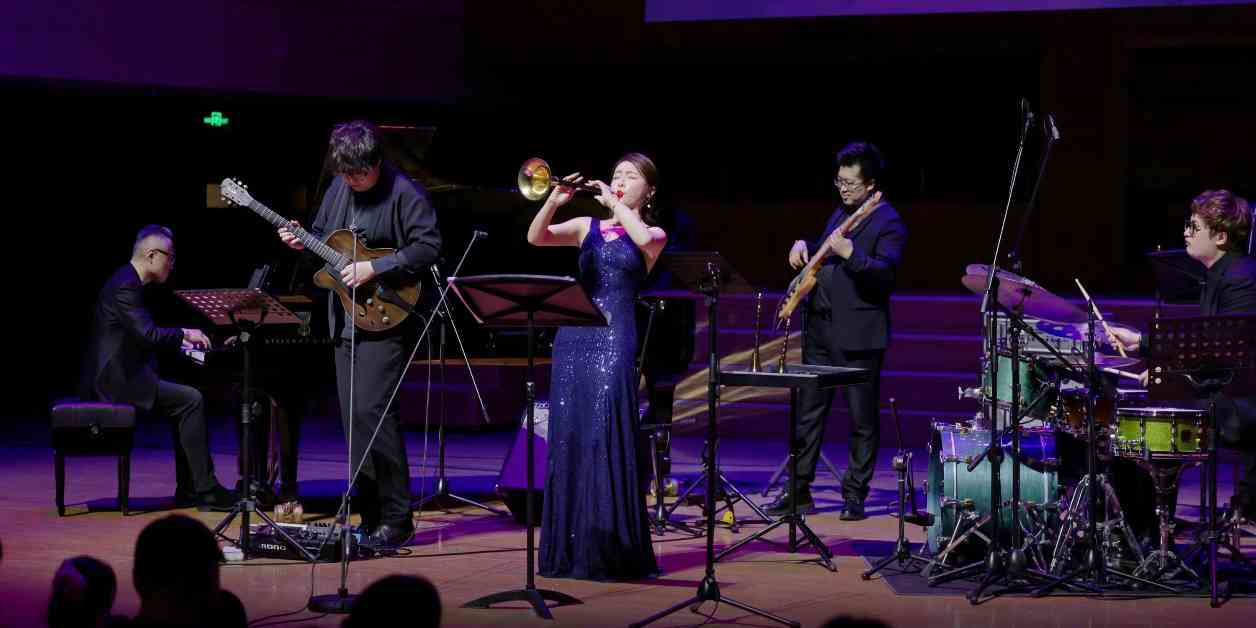Liu Wenwen Makes History as China’s First Suona Ph.D. Graduate
Liu Wenwen made history as she walked across the stage at the Shanghai Conservatory of Music graduation ceremony, donning a cap and gown. At 34 years old, she had achieved a monumental milestone by becoming the first person in China to earn a Ph.D. in suona studies. The suona, a traditional folk instrument long associated with grassroots celebrations, has recently garnered academic interest in China as musicians seek to integrate traditional instruments into orchestras and symphonies.
The Journey to a Doctorate in Suona Studies
In the late 2010s, two of China’s most prestigious music institutions, the Central Conservatory of Music in Beijing and the Shanghai Conservatory of Music, established doctoral programs dedicated to the study of suona. In 2020, Liu Wenwen became the first candidate in the country to pass the qualifying examinations and embark on her journey towards a Ph.D. in suona studies.
Over the next four years, Liu dedicated her time to both practice and academic research. To earn her degree, she needed to perform three solo recitals and write an original dissertation. The culmination of her hard work was celebrated at the graduation ceremony, where her mother, Liu Hongmei, beamed with pride. Liu Hongmei, one of the country’s first female suona musicians, had spent 30 years teaching her daughter the instrument, breaking away from the Chinese tradition of passing down knowledge only to sons.
A Musical Lineage Rooted in Tradition
Liu Wenwen’s musical lineage can be traced back over a dozen generations, with her father, Liu Baobin, practicing a suona tradition native to the southwestern corner of Shandong province. Her mother, Liu Hongmei, also hailed from a long line of suona players, specializing in the “Liu Clan Kaxi” suona tradition that sought to imitate animal sounds for over 12 generations.
Despite her family’s deep-rooted connection to the suona, Liu Hongmei faced obstacles in pursuing her passion for the instrument. Initially denied instruction by her grandfather and father, she began practicing in secret until her talent was recognized, leading to formal training. Her journey as a suona player was marked by challenges, from enduring scoldings and hardships to facing societal stigma in a region known for its cultural conservatism.
Liu Hongmei’s dedication to the suona was passed down to her daughter, Liu Wenwen, who was groomed from a young age to follow in her family’s musical footsteps. Under her mother’s strict guidance, Liu Wenwen honed her skills through early morning practices and relentless dedication, despite her initial reluctance to learn the instrument. The bond between mother and daughter was forged through music, with Liu Wenwen eventually embracing the suona as an integral part of her identity.
Discovering the Beauty of the Suona
Enrolling in the Shanghai Conservatory of Music marked a transformative chapter in Liu Wenwen’s relationship with the suona. Previously viewed as an arduous and stigmatized instrument, the suona took on new significance as Liu Wenwen delved into its complexities and embraced its unique qualities. The reed, handmade and devoid of standardization, presented challenges in pitch control that ultimately became opportunities for personalized expression and virtuosic displays.
Despite facing ridicule and prejudice for playing the suona, Liu Wenwen found pride in her musical heritage and the instrument’s distinctive characteristics. Her journey as a suona player culminated in a performance at the Sydney Opera House, where she captivated audiences with her rendition of “Hundred Birds Paying Homage to the Phoenix,” incorporating elements of her family’s Kaxi tradition into the iconic piece.
Embracing Innovation and Collaboration
As the suona experienced a cultural resurgence in the late 2010s, Liu Wenwen’s career flourished alongside the instrument’s newfound popularity. Securing a teaching position at the Shanghai Conservatory and exploring innovative collaborations with jazz musicians and pianists, Liu Wenwen pushed the boundaries of traditional suona performance. Her doctoral studies further deepened her understanding of regional suona variants and their unique musical forms, highlighting the instrument’s diverse cultural significance across different regions of China.
Looking towards the Future
Liu Wenwen’s journey to becoming China’s first suona Ph.D. graduate exemplifies the resilience and dedication required to pursue a passion for traditional music in a rapidly evolving musical landscape. As she continues to push the boundaries of suona performance and explore new avenues for collaboration, Liu Wenwen remains committed to preserving the rich heritage of the suona while embracing innovation and cross-disciplinary experimentation. Her groundbreaking achievements serve as a testament to the enduring legacy of the suona and its capacity to inspire future generations of musicians.

















